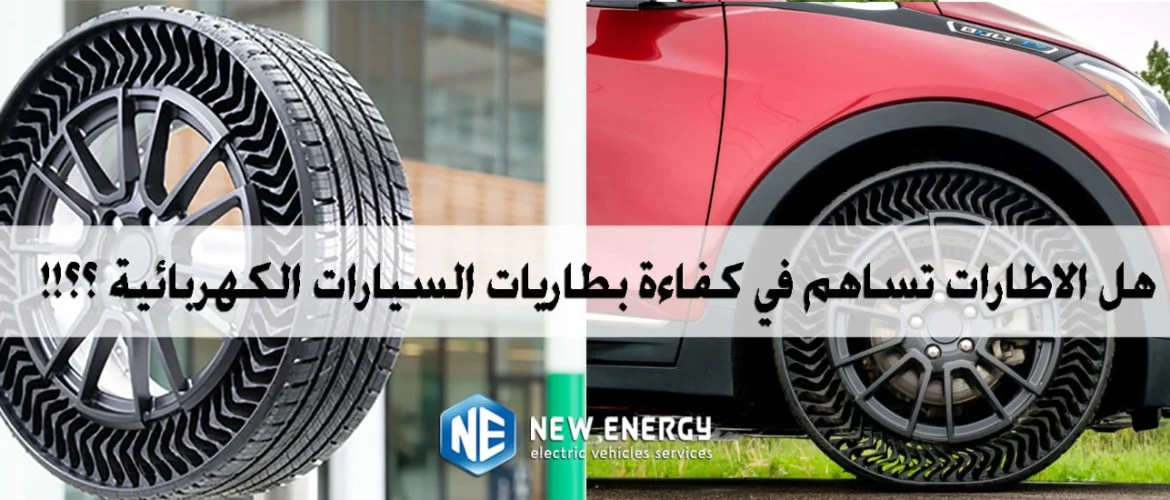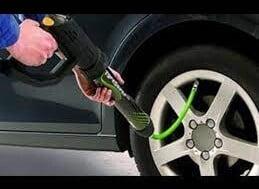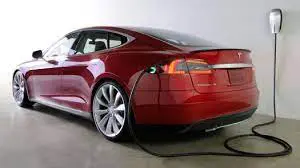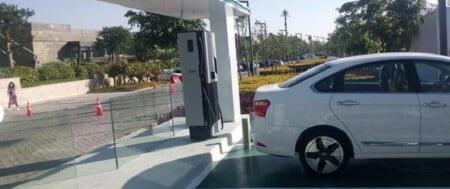all english artical in end
هل الاطارات تساهم في كفاءة بطاريات السيارات الكهربائية ؟؟!!
على مدار عمر السيارة، يمكن أن يكون للإطارات تأثير عميق على مدى كفاءة وعمر البطارية.
(معهد جيلي للأبحاث ، وشركة Shanglong)
وجد الباحثون تباين في مقاومة التدحرج ، بسبب التقلبات في ضغط الإطارات، قد يعني الحاجة إلى طاقة إضافية بنسبة 4٪ … ويواصل مصممو الإطارات تطوير إطارات خالية من الهواء مثل Michelin one GM التي تختبر حاليًا إطار لسيارة Chevrolet Bolt EV ، وقد انخرط المهندسون في التصميمات التي تستعيد الطاقة أثناء تدويرها أو تسخير الحرارة المتولدة في الثني. كما تفترض الدراسة الصينية أن متوسط المسافة السنوية للمركبة يبلغ 12000 كيلومتر في السنة ؛ ولكن توسيع هذا إلى مسافة السيارة النموذجية في الولايات المتحدة والتي تبلغ 12000 ميل في السنة ، فهي تصل إلى ما يقرب من 58 كيلووات ساعة لكل سيارة ، سنويًا.
بالنسبة لمعظم المركبات الكهربائية طويلة المدى اليوم ، مثل شيفروليه بولت EV أو نيسان ليف بلس – أو تسلا موديل 3 ستاندرد رينج بلس – يتعلق الأمر بشحن كامل لا يتم فقدانه لتشغيل الإلكترونيات أو تكنولوجيا البطاريات.
ويشير الباحثون إلى أن الحد من فقدان الضغط ومقاومة التدحرج يمكن أن يسمح لشركات صناعة السيارات باستخدام بطارية أخف وأرخص.
ويتوسع هذا التقدير ليشمل السوق الصيني بأكمله ، بالنظر إلى المبيعات التراكمية للمركبات الكهربائية ، فإن تغيير الإطار ببساطة يمكن أن يوفر 90 جيجاوات / ساعة في السنة – وهو ما يكفي لتزويد 50000 منزل صيني بالطاقة كمثال.
وجد الفريق أن احتباس الهواء يمثل مشكلة ، حيث أن 48٪ من الإطارات التي تم فحصها تقع ضمن ما تم اعتباره فئة “رديئة” مما يعني أنه سيكون هناك فقدان كبير للهواء بمرور الوقت ببساطة من الاستخدام العادي ، مما يؤدي إلى انخفاض الاقتصاد في استهلاك الوقود أو الكفاءة.
كما تشير دراسة ExxonMobil إلى أنه استنادًا إلى اختباراتها على الطريق ، مع إيلاء اهتمام أكبر لفقدان ضغط الإطارات – ومقاومة التدحرج – عبر عمر الإطارات والمركبة الكهربائية ، يمكن ان يحسن مدى السيارات الكهربائية بنسبة مذهلة تبلغ 3٪ إلى 7٪ .
وهذا يؤكد إلى حد كبير الاستنتاجات المستخلصة من عدد من الاختبارات – أن فرق النطاق من الإطارات وحدها لا يمكن الاستهانة به غالبًا.
فهل سيساهم مصنعو الإطارات فى إضافة مبهرة جديدة إلى العالم الكهربائى الواعد الجديد؟؟ هذا ماننتظره وربما قريباً .
Do tires contribute to the efficiency of electric car batteries??!!
Over the life of a vehicle, tires can have a profound effect on the efficiency and life of a battery.
(Geely Research Institute, Shanglong Corporation)
Researchers have found a discrepancy in rolling resistance that, due to fluctuations in tire pressure, could mean an additional 4% power is required … Tire designers continue to develop airless tires like Michelin one GM is currently testing a tire for the Chevrolet Bolt EV, and engineers have been engaged in Designs that recover energy as it is rotated or harness heat generated in bending. The Chinese study also assumes an average annual vehicle mileage of 12,000 kilometers per year; But extending this to a typical US car mileage of 12,000 miles per year, it comes to roughly 58 kWh per car, per year.
For most of today’s long-range electric vehicles, such as the Chevrolet Bolt EV or Nissan Leaf Plus – or the Tesla Model 3 Standard Range Plus – it’s about a full charge that isn’t lost to power electronics or battery technology.
The researchers suggest that reducing pressure loss and rolling resistance could allow automakers to use a lighter, cheaper battery.
This estimate extends to the entire Chinese market, given the cumulative sales of electric vehicles, simply changing a tire can save 90 gigawatt-hours per year – enough to power 50,000 Chinese homes, for example.
The team found air retention to be a problem, with 48% of tires checked falling into what was considered a “poor” category meaning there would be significant air loss over time simply from normal use, resulting in lower fuel economy or efficiency.
The ExxonMobil study also notes that based on its road tests, paying closer attention to tire pressure loss — and rolling resistance — across the life of tires and an electric vehicle, it could improve the range of electric vehicles by a staggering 3% to 7%.
This largely confirms the conclusions drawn from a number of tests – that the range difference from tires alone is often not underestimated.
Will tire manufacturers contribute to an impressive new addition to the promising new electric world?? This is what we are waiting for, maybe soon.
Over the life of a vehicle, tires can have a profound effect on the efficiency and life of a battery.
(Geely Research Institute, Shanglong Corporation)
Researchers have found a discrepancy in rolling resistance that, due to fluctuations in tire pressure, could mean an additional 4% power is required … Tire designers continue to develop airless tires like Michelin one GM is currently testing a tire for the Chevrolet Bolt EV, and engineers have been engaged in Designs that recover energy as it is rotated or harness heat generated in bending. The Chinese study also assumes an average annual vehicle mileage of 12,000 kilometers per year; But extending this to a typical US car mileage of 12,000 miles per year, it comes to roughly 58 kWh per car, per year.
For most of today’s long-range electric vehicles, such as the Chevrolet Bolt EV or Nissan Leaf Plus – or the Tesla Model 3 Standard Range Plus – it’s about a full charge that isn’t lost to power electronics or battery technology.
The researchers suggest that reducing pressure loss and rolling resistance could allow automakers to use a lighter, cheaper battery.
This estimate extends to the entire Chinese market, given the cumulative sales of electric vehicles, simply changing a tire can save 90 gigawatt-hours per year – enough to power 50,000 Chinese homes, for example.
The team found air retention to be a problem, with 48% of tires checked falling into what was considered a “poor” category meaning there would be significant air loss over time simply from normal use, resulting in lower fuel economy or efficiency.
The ExxonMobil study also notes that based on its road tests, paying closer attention to tire pressure loss — and rolling resistance — across the life of tires and an electric vehicle, it could improve the range of electric vehicles by a staggering 3% to 7%.
This largely confirms the conclusions drawn from a number of tests – that the range difference from tires alone is often not underestimated.
Will tire manufacturers contribute to an impressive new addition to the promising new electric world?? This is what we are waiting for, maybe soon.






